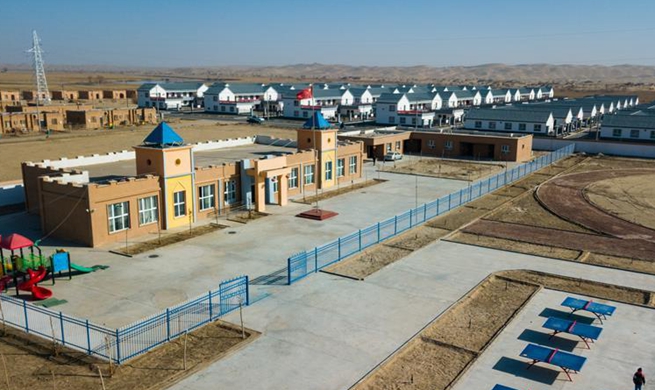GENEVA, Dec. 4 (Xinhua) -- Despite exceptional headway globally in fighting malaria for last decade, the progress has slowed in recent years and critical targets will likely be missed, according to a report released by the World Health Organization (WHO) on Wednesday.
The 2000-2015 period saw an exceptional reduction of malaria burden around the world, with many countries with a low burden of malaria having moved quickly towards elimination, said the WHO's World Malaria Report 2019.
In 2018, for instance, 49 malaria-endemic countries reported less than 10,000 cases of the disease, up from 40 countries in 2010, while 27 countries had less than 100 cases, up from 17 countries in 2010. It's a strong indicator that elimination of malaria is within reach, the report said.
In recent years, however, global progress in reducing the rate of new malaria infections has slowed. There were an estimated 228 million cases in 2018, compared with 231 million in 2017, while the global incidence rate of malaria, or the number of cases per 1,000 population, fell from 71 in 2010 to 57 in 2014 and remained at similar levels through 2018, the report said.
Global progress in reducing deaths has also slowed, with the rate of reduction of malaria mortality being slower in the 2016-2018 period than in the 2010-2015 period, and children under the age of five accounting for two thirds, or 67 percent, of global malaria deaths in 2018.
The major burden of malaria remains heavily concentrated in Africa. In 2018, the WHO African Region accounted for 93 percent of all cases worldwide, while more than half of all cases were in six countries -- Nigeria, the Democratic Republic of the Congo, Uganda, Cote d'Ivoire, Mozambique and Niger.
In view of recent trends, the report estimated that the global target of reducing case incidence and death rates of at least 40 percent by 2020, compared with a 2015 baseline, would likely be missed.
Progress towards the malaria target of WHO's Global Program of Work, which aims to halve malaria deaths by 2023, and the target of the Sustainable Development Goals, which calls for ending malaria worldwide by 2030, was also off track.
The WHO called for accelerated efforts to reduce infections and deaths in the hardest-hit countries, as inadequate funding remains a major barrier to future progress.
In 2018, total funding for malaria control and elimination reached an estimated 2.7 billion U.S. dollars, falling far short of the five-billion-U.S.-dollar funding target of the global strategy.

















